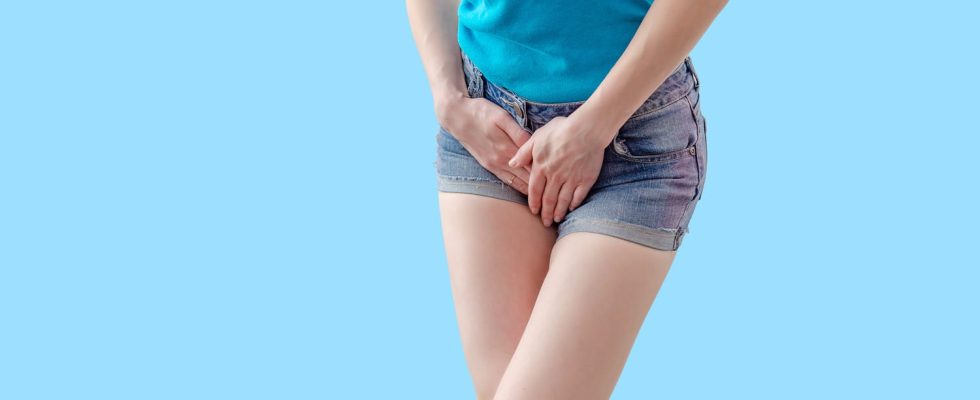Cystitis (urinary tract infection) is mild but can be very painful. Burning, need to pee… What are the typical first symptoms? What to do and what to take as soon as they arrive?
“A cystitis is inflammation of the bladder wallmost often related to the presence of bacteria“ immediately recalls Dr. Maxime Vallée, urologist at the University Hospital of Poitiers. “We are talking about cystitis in women. In men, urinary tract infection is usually linked to an infection of the prostate and has nothing to do with acute cystitis in women.” he says. Cystitis in women is mild illness but who can be very painful. What are the first suggestive symptoms of cystitis?
What are the first symptoms of cystitis?
“The symptoms of a first cystitis are quite noisy and sudden onset, often in the morning because the bacteria have grown in the urine of the night” describes Dr. Maxime Vallée. They combine:
- Of the burning on urination
- Urges to urinate frequent for small quantities
- Bladder pain at the end of urination
- Sometimes the presence of pus or blood in the urine
“These symptoms are not specific to cystitis. They are the manifestation of an abnormal reaction of the bladder and can sometimes reveal other diseases such as the presence of a stone in the bladder or the lower ureter, a tumor of the bladder, an overactive bladder sometimes a symptom of a disease underlying neurological…”, lists Dr. Maxime Vallée. In a young woman without a history, if these symptoms occur suddenly, cystitis is the most probable pathology.
What to do when the first symptoms appear?
“The first thing to deal with symptoms of acute cystitis is a course of diuresis. To drink a lot limits bacterial proliferation and therefore inflammation of the bladder” recommends Dr. Maxime Vallée. If the symptoms are very severe, it is advisable to consult a doctor quickly so that antibiotic treatment can be started, which is mainly prescribed to relieve the symptoms. “In a woman whose symptoms are minor, it is possible to wait” inform the urologist. “Cystitis that precedes pyelonephritis is quite exceptional and this generally occurs in patients with very specific risk factors such as a malformation of the urinary tract or immunosuppression for example” he specifies.
Cranberry juice, really effective?
“The cranberry juice sold in supermarkets is not effective because the active ingredients are in very low quantity” informs Dr. Maxime Vallée. Its only advantage is to make you drink which can relieve you. “The only molecule that has shown its effectiveness on Escherichia Coli cystitis ist proanthocyanidin type A. The tablets or capsules sold in pharmacies are dosed at 36mg of proanthocyanidin, the minimum effective concentration. Despite contradictory studies and the degree of uncertainty that persists concerning its real efficacy, the health authorities recommend, given the excellent tolerance of the molecule, a dose of at least 36 mg per day in the event of recurrent cystitis, i.e. more than 4 cystitis over a period of 12 months. This is of little interest for acute cystitis” says this specialist.
Which essential oils to relieve the onset of cystitis?
Essential oils have not been shown to be effective in relieving the symptoms of cystitis.
What can be taken for the onset of pregnant cystitis?
“The French and American recommendations are to prescribe a systematic antibiotic therapy in case of urinary tract infection in pregnant women but also in the presence of urinary colonization (presence of a bacterium in the urine without associated symptoms)” informs Dr. Maxime Vallée. Also, if you are pregnant, it is recommended to consult your doctor at the first signs of urinary tract infection. Antibiotic treatment notably makes it possible to prevent the risk of pyelonephritis which can in certain cases lead to a threat of premature delivery, particularly during the third trimester of pregnancy.
What are non-prescription drugs?
“All treatments other than antibiotics have been shown to be ineffective in studies” informs Dr. Maxime Vallée. Also, drink plenty and see if symptoms persist.
Thanks to Dr Maxime Vallée, urologist at the CHU de Poitiers.
